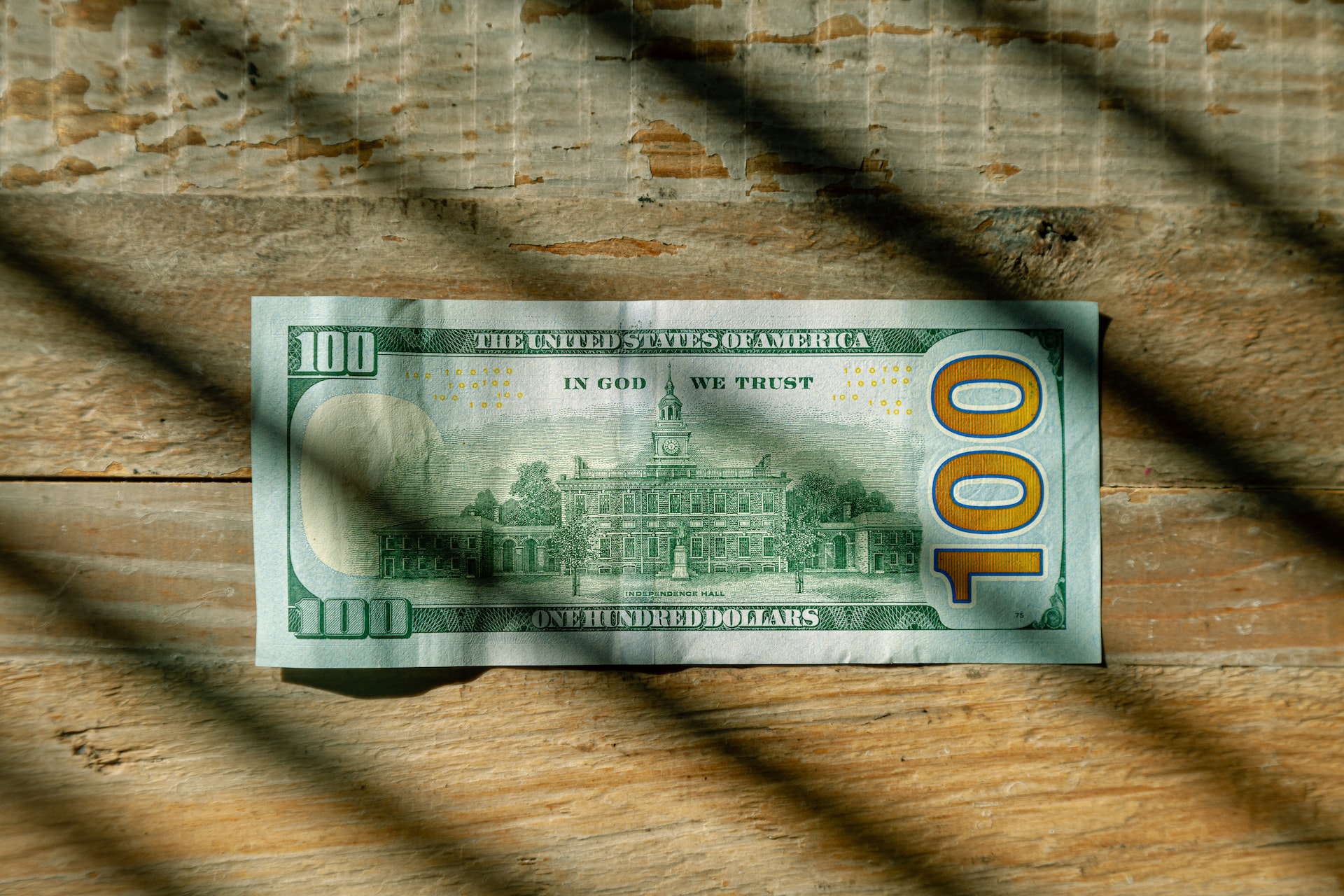A bad credit score can make it more difficult to qualify for a traditional loan. However, low-credit borrowers still need a way to make ends meet, and a personal loan can help. While banks and credit unions have stiff requirements, some lenders offer guaranteed loans for consumers with bad credit. Guaranteed loans have no credit score requirements and high approval rates. We will share how to find these loans and get quick financing so you can cover your expenses.
Why It’s Harder for People with Bad Credit to Get Approved for Loans
Many lenders use credit score requirements to limit who gets access to their financing. While this practice may seem unfair to someone with a bad credit score, financial institutions have a good reason to enforce credit score requirements. Your credit score gives lenders an idea or a snapshot of your ability to manage debt. The majority of people get high credit scores by paying debt on time and staying on top of their finances. Becoming an authorized user for someone else’s credit is one of the few exceptions to the rule. If you make late payments, struggle to keep up with loans, and have high credit card debt, your credit score will take a hit.
Lenders need borrowers to pay loans to grow and stay in business. If you want to see what happens if banks lower their requirements, look no further than the Great Recession. Banks got greedy leading up to the Great Recession and made it easier for anyone to get loans. While this decision seemed good on the surface and made loans more accessible, the aftermath was devastating. This decision resulted in a surge of loan applications from people who had no way to repay the loans after the introductory period ended. Millions of foreclosures and a financial crisis emerged from those mistakes. Traditional banks will stay away from borrowers with lower credit because they don’t want to incur too much risk and repeat their mistakes from the Great Recession.
What are Guaranteed Loan Approvals for Bad Credit?
Many people use loans to obtain additional funds for emergency expenses and other purchases. Consumers with bad credit have fewer options, but bad credit loans can help. These loans have no credit score requirement and are easier to obtain. You only need to present your ID, social security number, and income verification to get these loans.
How Do These Types of Loans Work?
Guaranteed loan approvals work like any loan. You receive the principal in your bank account and have to pay it back over time. Some loans have monthly installments, while others are lines of credit that you pay at your own pace. These direct lenders do not conduct credit checks, a policy that speeds up the application process. However, these lenders typically have higher interest rates and fees because of the additional risk they incur from each borrower.
What You Should Look For
Online lenders have emerged in recent years as viable alternatives to traditional banking. You can get capital quicker, build your credit, and get competitive rates. Some lenders are better than others, and you shouldn’t rush to apply for the first loan you find. You should shop around and keep these factors in mind before working with a lender.
Lender Reputation
Many people post online reviews after using a product or service. You can look through online reviews to see how each lender treats its customers. Online reviews are one of the best resources to learn about a lender’s reputation. Every lender can claim they are the best, but past customers will tell the truth. It can also help if the lender has over a decade of experience. The extra experience indicates the lender has navigated more economic cycles compared to working with a lender that got started a year ago.
Application Process and Requirements
Each online lender has a different application process and requirements. For example, some lenders have higher income or debt-to-income requirements than others. Review the requirements before submitting an application to increase the likelihood of getting approved. Most lenders offering guaranteed loan approvals have quick application processes. It should only take a few minutes to complete their form and move to the next step.
Applicants should also consider if the lender will run a soft or hard credit check during the application process. A hard credit check will reduce your score by a few points. While a hard credit inquiry is not a big deal, accumulating several of them can have a meaningful impact on your score. Soft credit checks, in comparison, do not affect your credit score. As a result, you can apply for the loan without worrying about your score taking a short-term hit.
Rates and Fees
A loan’s costs are the most decisive factor for many applicants. You won’t get the best rates and fees if you get a guaranteed loan, but you should still look for competitive guaranteed loan approvals. You don’t want to get stuck with a triple-digit ARP when you can find a loan with a 30% annual interest rate. Browsing several loan offers can help you find attractive rates and fees relative to the competition.
Loan Terms and Conditions
Your loan’s terms and conditions encompass every detail of your loan. This component details your rates, fees, what happens if you miss a payment, and any special conditions. Some lenders give you flexibility. For example, you can extend your loan’s duration to minimize monthly payments or opt for a shorter loan to get out of debt sooner. Others lenders are more rigid and offer unfavorable conditions for receiving capital. If you don’t like a lender’s terms and conditions, you can always shop around until you find reasonable terms based on your finances.
Personal and Financial Data Protection
Cybersecurity is a hot topic, and hackers will look for any opportunity to steal money and sensitive information. Check with your lender to see what policies they have in place to protect your personal and financial data. You may want to stay away from lenders that recently got hit with a cyberattack, as hackers may circle back to them in the future. Data encryption and other protective measures go a long way in protecting your information.
Finding Loans with Guaranteed Approvals for People with Bad Credit
Loans with guaranteed approval offer some relief for consumers with bad credit scores. You don’t have to be locked out of vital funds because you don’t qualify for a conventional loan. Borrowers seeking loans with guaranteed approval have several choices, but some are better than others.
No Credit Check Loans
Lenders offering these no-credit check loans will not check your credit before giving you a loan. Some consumers make enough income to repay their loans, but past money mismanagement can take a while to leave your credit score. Avoiding a hard credit check will protect your score, but a soft credit check won’t do any damage. A common theme with loans on this list is that you don’t need good credit to get the financing you need, and many of them do not require as much documentation, if any, beyond your legal ID and proof of income.
Payday Loans
These loans provide financing based on your paychecks. Many people get payday loans to receive their paychecks in advance. After covering the emergency expenses and receiving the next paycheck, the borrower then pays off the loan. That’s how these loans are supposed to work in theory, but triple-digit interest rates and high fees make these loans dangerous. Some borrowers pay far more interest than what they paid for the principal. This loan should be your last choice when looking for financing, and if you get stuck with one of these loans, you should pay it back the same week.
Emergency Loans
Some personal loans let you specifically manage emergency expenses. You can get this loan to cover an emergency and then repay the loan over time. These financial products have lower interest rates than some of the other loans on this list.
Installment Loans
Installment loans are popular financial products that let you borrow principal and make monthly payments until you repay the debt. Some lenders offer installment loans with no credit requirements, but if you have good credit, you can get better rates and terms. If you don’t like the idea of a high loan amount you have to pay back right away, you can also consider a personal line of credit.
Personal Line of Credit
A personal line of credit is like an unsecured loan, but you only pay interest when you borrow against the principal. Personal lines of credit have variable interest rates, which adjust based on market conditions and other factors. You can get a personal line of credit before an emergency strikes, so you have it available. You won’t have to reapply for a personal line of credit when you repay the balance. This route provides fewer hassles, and you can get lower interest rates with this financing option than with a credit card.
Credit Card Cash Advance
If you already have a credit card, you can request a cash advance even if you have bad credit. Credit card issuers let you take out a cash advance equal to a predetermined percentage of your credit limit. Consumers with higher credit card balances will have more difficulty taking out a cash advance and getting enough money to cover their expenses. This method is also expensive. Credit card companies charge a cash advance fee right away, and those funds increase your credit card’s balance. Credit cards are known for their high-interest rates, but they pale in comparison to some of the other no-credit-check loans on this list.
Title Loans
Title loans use your car as collateral, and most lenders let you obtain cash equal to 25% to 50% of your car’s value. The lender will request a set of keys and install a GPS into your vehicle. These protective measures for the lender prevent runaways, but they aren’t the best for consumers. Some title loans have triple-digit annual interest rates even though you are using your vehicle as collateral. Normally, collateralized loans have lower interest rates since the risk shifts to the borrower, but title loans are one of the exceptions to this rule. Some people desperately try to refinance their car title loans to avoid repossession and get trapped in the debt cycle. These loans are slightly better than payday loans, but you should consider other choices.
Auto Loans
A car is one of the most important purchases you will make, only behind owning a home. Unfortunately, some consumers feel restricted by low credit, but they can get guaranteed auto loans. This financing gives you the capital you need to buy a car even if you have poor credit. These loans have higher interest rates and fees than typical auto loans, but they provide you with the car you need.
Credit Builder Loans
Credit builder loans are small loans, typically $500 to $1,000, that help consumers rebuild their credit. Some of these loans require a secured deposit and only give you the money back after you make all of the monthly loan payments. While this dynamic isn’t the best way to raise funds for an emergency, some credit builder loans give you upfront cash from the loan that you can use for emergency expenses or keep up with the monthly credit builder loan payments. Again, this isn’t the best place to look for emergency funds in most cases, but some lenders can help you out, and you will improve your credit score with on-time payments.
Home Equity Loans
If you own a home, you can tap into your property’s equity for emergency funds. This funding source is a popular choice for people planning home improvements, vacations, and other high-ticket expenses. Home equity loans have fixed monthly payments and lower interest rates than most of the loans on this list. Since your home becomes collateral for the loan, lenders view you as a less risky borrower. While traditional banks may require a 620 credit score or better, other lenders may give you a home equity loan even if you have bad credit.
Home Equity Lines of Credit
A home equity line of credit features the same advantages as an unsecured line of credit, except it uses your home as collateral. You only pay interest on a home equity line of credit when you borrow against the principal. Most lenders let you borrow a line of credit up to an 85% loan-to-value ratio, including your current mortgage. For example, if you have a $500,000 home, you can borrow up to $425,000. If you owe $300,000 on your mortgage, you can borrow up to $125,000 for your line of credit. Some lenders provide funding for borrowers with bad credit and let you tap into more of your home’s equity.
Get a Co-Signer for a Traditional Bank Loan
Raising your credit score over time is the best way to get better financing. While this long-term objective makes sense, it doesn’t help if you need a loan right now. Luckily, you don’t have to approach a bank on your own. A borrower with bad credit can get a traditional bank loan if they find a co-signer who has good credit.
The bank will look at the co-signer’s credit score and income when reviewing your loan application. Co-signers become legally liable for the loan payments if the primary borrower cannot keep up with them. This arrangement puts a significant risk on the co-signer for the capital they will never see. You will have to ensure a co-signer that you will pay the loan on time, so they are confident enough to help you out. Most people look to their friends and family for a co-signer, as a stranger is unlikely to incur that much risk for someone they don’t know.
Borrow Money from Friends and Family
Your friends and family members may offer to help during a financially desperate situation, but you should pay them back. You can have a written agreement that details the loan’s amount and the repayment terms. Friends and family may give you better terms than anything you could find at a bank. Some friends and family members will give you the funds without requesting a formal document detailing repayment, but it’s good to create a plan of how you will pay them back.
This financing option is risky because of how not repaying family and friends can affect relationships. It is very important to keep that in mind before approaching the people closest to you for financing. You shouldn’t stress about paying them back within a month if it would be financially unfeasible, but you should consider how much time most banks would give you to make that payment and then use that timeframe to repay your family and friends.
Personal Loans for Borrowers with Bad Credit
A personal loan is a great financial product that often has lower interest rates. These unsecured loans can be used for any expense, from a family vacation to a pressing need. While traditional banks have stringent requirements for personal loans, other lenders may offer funding within 24 hours even if you don’t have the best credit score. In addition, most of these loans have fixed monthly payments with an interest rate that stays the same throughout the loan’s term.
Use a Peer-to-Peer Lending Platform
Peer-to-peer lending platforms let you request money from their user bases. These lenders will assess your income, credit score, and other details to determine the interest rate on these loans. P2P loans can operate in the background and help you raise extra cash. After getting your emergency expenses in order, you can also make money on peer-to-peer lending platforms. You can lend money to users and collect interest like traditional banks.
Pawnshop Loans
Pawn shops will be happy to help you out if you need extra funds. Pawn shops use personal belongings as collateral that you have to give to the pawn shop. Pawn shops offer loan amounts equal to 25% to 60% of each item’s face value. Pawn shops do not run credit checks and can give you the funds right away. Borrowers can revisit the pawn shop and obtain their items after paying off the loan.
You can also sell your items on eBay and other sites to raise cash. If someone buys your item, you could have funds in your bank account shortly after. However, pawn shops offer a quicker, albeit more expensive, path to get the financing you need. Borrowers can even reacquire items they give to the pawn shop. Of course, you would have to buy a replica on eBay to reacquire the item, but some things hold sentimental value, and it wouldn’t feel the same if you sold it on eBay and repurchased a replica or copy a few months later.







